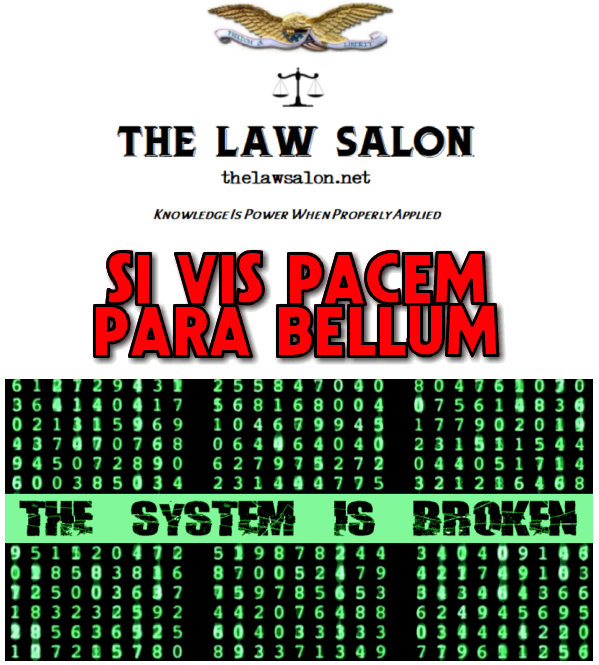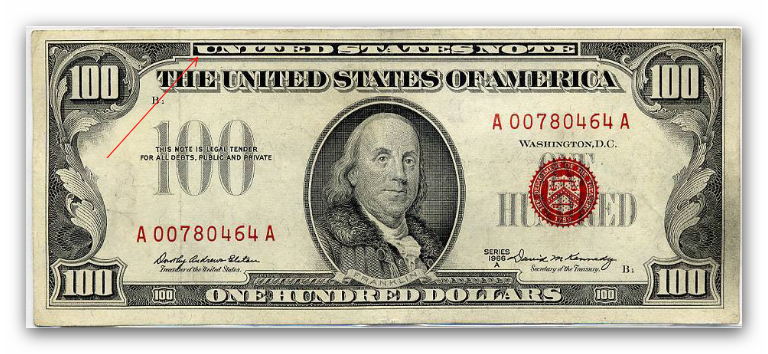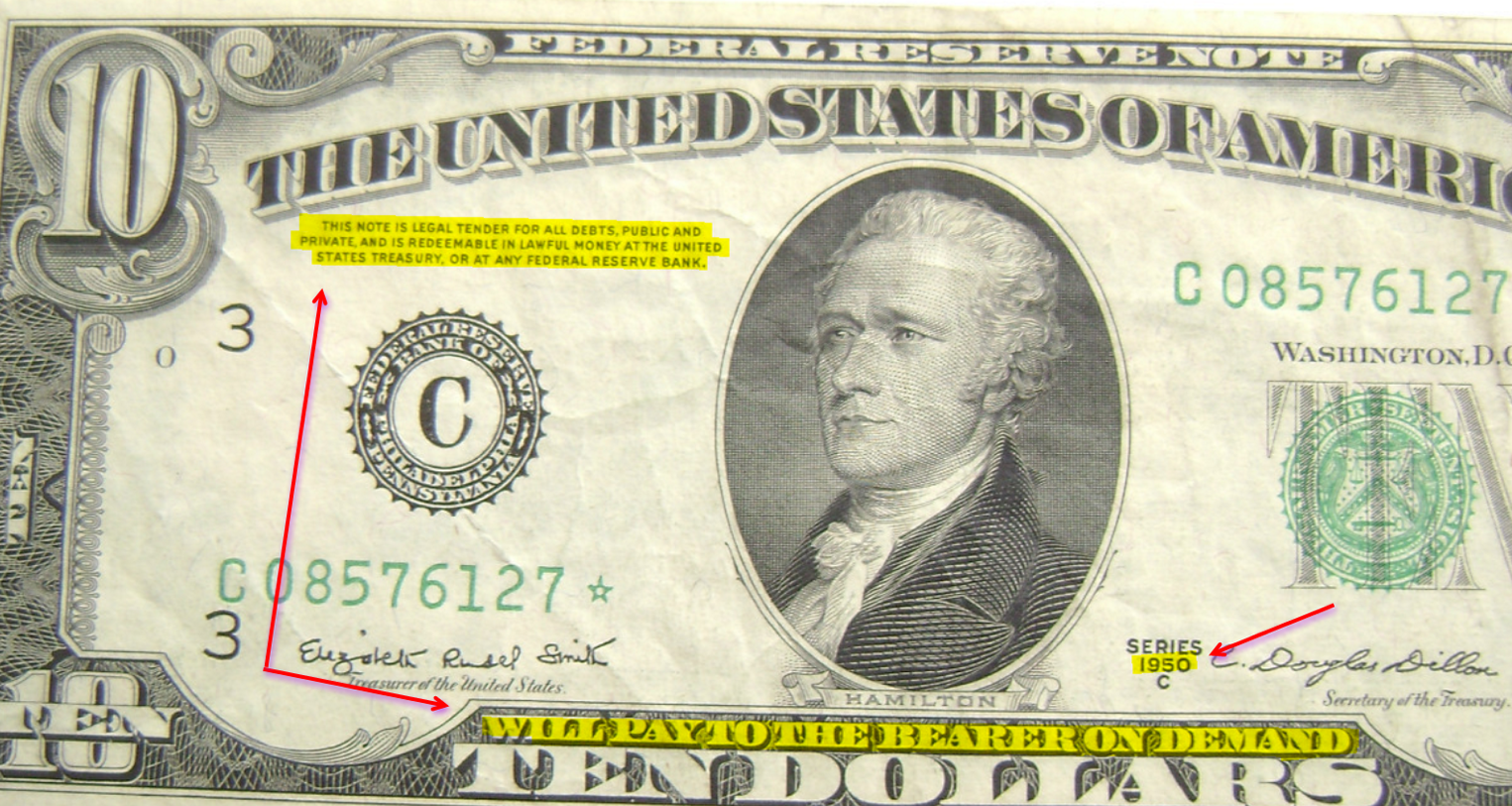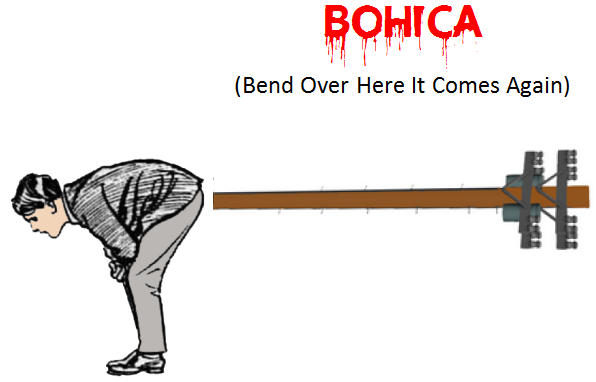The information that follows originates from State
and federal government sources. What follows is
FOUNDATIONAL to the legal system in America and every state that
comprises America.
JUDGES ARE MANDATED OR OBLIGATED TO TAKE JUDICIAL NOTICE OF THE FOLLWING AND RULE IN ACCORDANCE WITH IT.
CALIFORNIA EVIDENCE CODE
SECTION 450-460
450. Judicial notice may not be taken of any matter unless authorized or required by law.
451. Judicial notice shall be taken of the following:
(a) The decisional, constitutional, and public statutory law of this state and of the United States and the provisions of any charter described in Section 3, 4, or 5 of Article XI of the California Constitution.
(b) Any matter made a
subject of judicial notice by Section 11343.6, 11344.6, or 18576 of the
Government Code or by Section 1507 of Title 44 of the United States
Code.
(c) Rules of
professional conduct for members of the bar adopted pursuant to Section
6076 of the Business and Professions Code and rules of practice and
procedure for the courts of this state adopted by the Judicial Council.
(d) Rules of
pleading, practice, and procedure prescribed by the United States
Supreme Court, such as the Rules of the United States Supreme Court,
the Federal Rules of Civil Procedure, the Federal Rules of Criminal
Procedure, the Admiralty Rules, the Rules of the Court of Claims, the
Rules of the Customs Court, and the General Orders and Forms in
Bankruptcy.
(e) The true signification of all English words and phrases and of all legal expressions.
(f) Facts and propositions of
generalized knowledge that are so universally known that they cannot
reasonably be the subject of dispute.
CANONS OF JUDICIAL ETHICS
- ALL JUDGES SHALL COMPLY WITH THIS CODE -
CALIFORNIA GOVERNMENT CODE sec. 14: "Shall" is mandatory...

CALIFORNIA WORDS,
PHRASES AND MAXIMS
(As defined in the codes and cases)
FILL
TO
MOOT
1960
Bancroft – Whitney company
San Francisco
p. 676
MAY
“Shall” means “must,” while “may” means “to have power.”
National Auto and Casualty Insurance Company v. Garrison (1946) 76 Cal. App. 2d 415
p. 714
MINISTERIAL
Where a statute requires an officer to do a prescribed act upon a prescribed contingency, his functions are “ministerial”.
Drummey v. State Board of Funeral Directors v. Embalmers (1939) 13 Cal.2d 75
A “ministerial act” is one which a public officer is required to
perform in a prescribed manner in obedience to the mandate of legal
authority and without regard to his own judgment or opinion concerning
the propriety or impropriety of the act to be performed, or when given
a state of facts exist.
Williams v. Stockton (1925) 195 Cal. 743
A “ministerial act” is one unqualified of the required of a public
officer, though the manner of performance may be discretionary.
Any duty is “ministerial” which unqualifiedly requires the doing of a
certain thing; to the extent that its performance is unqualifiedly
required, is not discretionary, even though the manner of its
performance may be discretionary.
Ham v. Los Angeles County (1920) 46 Cal.App. 148
A “ministerial duty” is one in respect to which nothing is left to the
discretion; it is a simple, definite duty, arising under circumstances
admitted or proved to exist, and imposed by law.
Sullivan v. Shanklin (1883) 63 Cal. 247

p. 718 - 719
MISBRANDED
While the term “misrepresent” was not used in the California Economic
Poison Act of 1921 §2, the term “misbranded” which was used in the
title of the act included that of misrepresentation; and the evident
intent of the legislature was to prohibit the adulteration, misbranding
and misrepresentation in the use or sale of economic poisons.
Gregory v. Hecke (1925) 73 Cal.App. 268
Packaged and labeled candy that is stale and altered in flavor,
appearance and chemical composition is “adulterated” in the sense that
it is decomposed, and in the sense that it’s damaged or inferiority has
been concealed, and, where the labels do not indicate such condition of
the product, such candy is “misbranded” within the meaning of H & S
C §26490.
People v. 748 Cases of Life Saver Candy Drops (1949) 94 Cal.App.2d 599
p. 719
MISCARRIAGE
It would be a “miscarriage of justice” to refuse a new trial where a
judge was of the opinion that the reasonable doubt rule had not been
complied with, or that an element of the offense had not been
established as required by that rule.
People v. Nelson (1940) 36 Cal.App.2d 515
If a defense is permissible in a particular case, refusal to receive
evidence in its support constitutes a “miscarriage of justice” of such
a character as to be in violation of Constitution Article VI §4 ½.
Southern California Homebuilders v. Young (1920) 45 Cal.App. 679
The phrase “miscarriage of justice,” within the meaning of Constitution
article VI §4 ½, does not simply mean that a guilty man has escaped, or
that an innocent man has been convicted; is equally applicable to cases
where the acquittal or the conviction has resulted from some form of
trial in which the essential rights of the people or of the defendant
were disregarded or denied.
People v. Weatherford (1945) 27 Cal.2d 401
People v Wilson (1913) 23 Cal.App. 513
People v. Adams (1926 76 Cal.App. 178
People v. Mellus (1933) 134 Cal.App.219
People v. Gilliland (1940) 39 Cal.App. 2d 250
People v. Cowan (1941) 44 Cal.App.2d 155
People v. Rodriguez (1943) 58 Cal.App.2d 415
People v. Smittcamp (1945) 70 Cal.App.2d 741
People v. Hooper (1949) 92 Cal.App.2d 524
People v. Geibel (1949) 93 Cal.App.2d 147

p. 691 - 692
MENACE
Under CC §1570 “menace” consists, among other things, of a threat of
“injury to the character of” the persons mentioned in §1569 defining
duress; and it is well-settled generally that the threat of arrest on a
criminal charge in aid of the collection of debt constitutes “menace,”
which in criminal law is extortion and amounts to a felony, and civil
law warrants rescission and may be set up in defense of an action on
debt.
Bridges v. Ruggles (1927) 202 Cal. 326
A threat of arrest and imprisonment, made from lawful purposes,
constitutes “menace” within the meaning of CC §1570, defining menace as
a threat of duress or of a threat of injury to the character of a
person.
Morrill v. Nightingale (1892) 93 Cal. 452
Miller v. Walden (1942) 53 Cal.App.2d 353
The threat which is necessary to constitute “menace” must be more than
some statement or act from which a guilty person becomes apprehensive
the prosecution – it is the threat and not the apprehension which makes
out the “menace” and that threat must be in an unlawful and invalid one.
Miller v. Walden (1942) 53 Cal.App.2d 353
An agreement obtained under threat of criminal prosecution is void even
if amount agreed to be paid is due, because of the criminal prosecution
as a means of collecting a debt is against public policy ;such threats
constitute “menace” destructive of free consent.
Shasta Water Company v. Croke (1954) 128 Cal.App.2d 760

P. 741
MONEY
By the laws of the land in 1864, the country was furnished with three kinds of money – gold, silver, and United States notes,
as a medium of exchange; “money” made by the coinage of gold or silver,
was a legal tender, as prescribed by law, in the discharge of
obligations, which were to be satisfied by the payment of “money” in
general terms.
Carpentier v. Atherton (1864) 25 Cal. 404
FEDERAL RESERVE NOTES ARE NOT MONEY!
FEDERAL RESERVE NOTES ARE I.O.U.s!
YOU CAN NOT "PAY" FOR ANYTHING WITH AN I.O.U!
THIS IS MONEY ACCORDING TO THE LEGAL DEFINITION:
THIS IS NOT MONEY ACCORDING TO THE LEGAL DEFINITION:

MONEY.
In usual and ordinary acceptation it means gold, silver, or paper money
used as circulating medium of exchange, and does not embrace notes,
bonds, evidences of debt, or other personal or real estate. Lane
v. Railey, 280 Ky. 319, 133 S.W.2d 74, 79, 81.
BLACK’S LAW DICTIONARY, 4th Edtiton, p. 1157.
THAT USED TO
BE PRINTED ON FEDERAL RESERVE NOTES IN 1950. THEN THE
FEDERAL RESERVE DECIDED THEY WOULD NOT CONVERT THIER IOUs TO ACTUAL
MONEY ANY MORE.
CALIFORNIA WORDS,
PHRASES and MAXIMS
(As defined in the codes and cases)
MORAL
TO
RESIDE
BANCROFT - WHITNEY COMPANY
San Francisco
1960
“Municipal” pertains to a city or corporation having the right of
administering local government - as “municipal” rights, “municipal”
officers.
In re Werner (1900) 129 Cal. 567
Randolph v. Stanislaus County (1919) 44 Cal.App. 322
The term “municipal,” as commonly used, is appropriately applied to all
corporations governmental functions, either general or special.
Merchants National Bank v. Escondido Irrigation District (1904) 144 Cal. 329
Siler v. Industrial Acc. Com. (1957) 150 Cal.App.2d 157
“Municipal” means an inferior power or jurisdiction rather than state jurisdiction.
Clements v. Bechtel (T.R.) Co. (1954) 43 Cal.2d 227
CALIFORNIA WORDS,
PHRASES AND MAXIMS
BANCROFT – WHITNEY COMPANY
1960
RESIDENCE
TO
ZONING
~~~~~~~~~~~~
p. 63
SALE; TAX:
The “sales tax” imposed by the retail sales tax act is an excise tax on the retailer and not on the consumer.
de Aryan v. Akers (1938) 12 Cal.2d 156
The “sales tax” and the “trucking tax” are excise and not property
taxes. Each is a well defined privilege tax: one for the
privilege of selling tangible personal property retail and the other
for the privilege of using the public highways for hauling
services. Though each taxes measured by gross receipts,
separate and distinct privileges are involved. The
imposition of such taxes therefore presents no problem of double
taxation
Select Base Materials, Inc. v. State Board of Equalization (1959) 51 Cal.2d 640
A “sales tax” is an excise and privilege tax levied on a retailer for
the privilege of selling tangible personal property. The
law imposes the fixed rate of the tax on gross receipts and not on the
individual sale of tangible personal property. It is not a
tax on the sale or because of the sale but is an excise tax for the
privilege of conducting a retail business measured by the gross
receipts from sales. It has uniformly and consistently been
held that the sales tax is solely on the retailer and not on the
consumer. The relationship is between the retailer only and
the state; and is a direct obligation of the former. A
retailer may “pass on” tax to a buyer with the latter’s consent thereto
either expressly or impliedly given. In the absence of
either the express or implied consent of the buyer that he will assume
the burden of paying the tax, he is under no legal liability to do so.
Livingston Rock & Gravel Company v. De Salvo (1955) 136 Cal.App.2d 156
 p. 160 - 161
SPECIAL; APPEARANCE:
p. 160 - 161
SPECIAL; APPEARANCE:
If the defendant by his appearance insist only upon the objection that
he is not in court for want of jurisdiction over his person and
confines his appearance for that purpose only, then he is made a
“special appearance,” but if he raises any other question, or asks any
relief which can only be granted upon the hypothesis that the court had
jurisdiction of his person, then he has made a general appearance.
Judson v. Superior Court (1942) 21 Cal.2d 11
Bank Of America National Trust and Savings Association v. Harrah (1952) 113 Cal. App. 2d 6 39
If a party appears in objects only to the consideration of the case or
any procedure in it because the court had not acquired jurisdiction of
the person of the defendant or a party, then the “appearance” is
special.
Judson v. Superior Court (1942) 21 Cal.2d 11,
Brock v. Fouchy (1946) 76 Cal.App.2d3 63,
Milstein v Ogden (1948) 84 Cal.App.2d2 29,
Proctor and Schwartz Inc. v. Superior Court (1950) 99 Cal.App.2d 376
An appearance made only for the purpose of moving to dismiss an action
on any one of the grounds specified in CCP §581a for lack of
prosecution is an “special appearance.”
Frohman v. Bonelli (1949) 91 Cal.App.2d 285
If the defendant, by his appearance, insist only upon the objection
that he is not in court for want of jurisdiction over the person, and
confines his appearance for the purpose only, then he has made a
“special appearance.”
Pease v. San Diego (1949) 93 Cal.App.2d 843
An objection, phrased in the language of the demurrer, on the ground
that the court had not acquired jurisdiction of the person of the
defendant is a “special appearance.”
Proctor and Schwartz Inc. v. Superior Court (1950) 99 Cal.App.2d 376
The test as to whether an appearance is “general” or “special” is, did
the party appear and object only to the consideration of the case or
any procedure in it because the court had not acquired jurisdiction of
the person of the defendant or party? If so, then the
appearances “special.” If, however, he appears and asked
for any relief which could be given only to a party in a pending case,
or which itself would be a regular proceeding in the case, it is a
“general” appearance regardless of how adroitly, carefully or directly
the appearance may be denominated or characterized as
special. The rule in this regard may be epitomized by
saying that if the defendant by his appearance insist only upon the
objection that he is not in court for want of jurisdiction over his
person and confines his appearance for that purpose only, then he has
made a special appearance, but if he raises any other question, or
assess any relief which can only be granted upon the hypothesis that
the court has jurisdiction of this person, then he is made a general
appearance.
Judson v. Superior Court (1942) 21 Cal.2d 11,
Armstrong v. Superior Court (1956) 144 Cal.App.2d 420

CALIFORNIA VEHICLE CODE
DIVISION 17. OFFENSES AND PROSECUTION
CHAPTER 2. PROCEDURE ON ARRESTS
Article 1. Arrests .................... 40300 - 40313
Lexicographers define the word "wait": "To rest patiently in
expectation: Remain inactive or stay in one place in anticipation
of an arrival or an event, or until the proper time comes for action."
-- Webster. Among the definitions by the same author of the
word "stop" we find: "To bring from motion to rest: Arrest the
course, progress, or movement."
Wixon v. Raisch Improv. Co. (April 19, 1928) 91 Cal. App. 129, Civ. No. 6073, Court of Appeal of California, First Appellate District, Division Two
stop - verb
6a: to arrest the progress or motion of : cause to halt
stopped the car
intransitive verb
2a: to cease to move on : HALT
3a: to break one's journey : STAY
"To bring from motion to rest: Arrest the course, progress, or movement."
noun
6a: a halt in a journey : STAY
halt - verb
transitive verb - to bring to a stop
https://www.merriam-webster.com/dictionary/stop
STOP. Within a statute requiring a motorist striking a person with automobile to stop requires a definite cessation of movement
for a sufficient length of time for a person of ordinary powers of
observation to fully understand the surroundings of the accident. Moore
v. State, 140 Tex.Cr. R. 482, 145 S.W.2d 887, 888.
Black’s Law Dictionary, 4th Ed., 1951, p. 1588
STOPPAGE IN TRANSITU. The act by which the unpaid vendor of goods
stops their progress and resumes possession of them, while they are in
course of transit from him to the purchaser, and not yet actually
delivered to the latter.
Black’s Law Dictionary, 4th Ed., 1951, p. 1588, 1589

halt - noun: STOP
The car came to a halt.
Synonyms
Verb (1)
arrest
stop
https://www.merriam-webster.com/dictionary/halt
BOULEVARD. A public
street which is usually of greater width than ordinary business
streets, and is given a park like appearance by reserving spaces at the
sides or center for shade trees, flowers, seats, and the like, and
ordinarily is not used for heavy teaming. It is usually set
apart for pleasure driving rather than general business purposes of an ordinary street. See Haller Sign Works v. Physical Culture Training School, 249 Ill. 436, 34 L.R.A. (N.S.) 989, 1002, 94 N.E. Rep. 920
Ballentine Law Dictionary, 2 nd Ed., 1948, p. 168
Driver - Webster's Unified Dictionary and Encyclopedia, International Illustrated Edition (1960)
One that drives; a chauffeur, coachmanm or the like;
Driver - Bouvier's Law Dictionary, 1856
One employed...
Driver - Black's Law Dictionary, 1st ed., 1891
One employed...
Driver - Black's Law Dictionary, 2nd ed., 1910
One employed...
Driver - Black's Law Dictionary, 3rd Ed, 1933
One employed...
Driver - Black's Law Dictionary 4th Ed., 1951
One employed...
Driver - Black's Law Dictionary, 6th Ed., 1991
A person actually doing driving,
whether employed by owner to drive or driving his own vehicle.
Driver - Dictionary of Occupational Titles, 1965, Volume 1, Definition of Titles
(dom. ser.) see CHAUFFEUR.
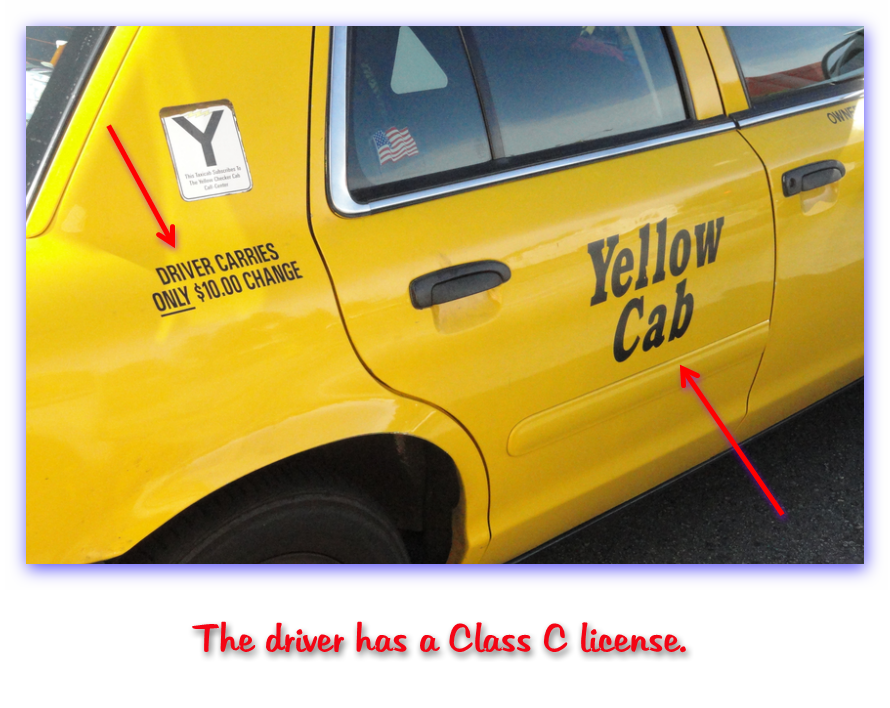

OPERATOR - (a) Any person engaging in the transportation of persons or property for hire or compensation by or upon a motor vehicle upon any public highway in this State, either directly or indirectly.
(b) Any person who
for compensation furnishes any motor vehicle for the transportation of
persons or property under a lease or rental agreement when such person
operates the motor vehicle furnished or exercises any control of, or
assumes. any responsibility for the operation of the vehicle
irrespective of whether the vehicle is driven by such person or the
person to whom the vehicle is furnished, or engages either in whole or
in part in, the transportation of persons or property in the motor
vehicle furnished.
STATUTES OF CALIFORNIA 1955, Chapter 1905, Section I. Section 9603 of the Revenue and Taxation Code
"It will be observed from the language of the ordinance that a
distinction is to be drawn between the terms `operator' and `driver';
the `operator' of the service car being the person who is licensed to
have the car on the streets in the business of carrying passengers for hire; while the `driver' is the one who actually drives the car. However, in the actual prosecution of business, it was possible for the same person to be both `operator' and `driver.'"
Newbill vs. Union Indemnity Co., 60 SE.2d 658 (May 31, 1933)
STATUTES OF CALIFORNIA 1955
Chapter 1905
Section I.
Section 9603 of the Revenue and Taxation Code is amended to read:
9603. "Operator" includes:
(a) Any person engaging in the transportation of persons or property for hire or compensation by or upon a motor vehicle upon any public highway in this State, either directly or indirectly.
"Operator" does not include any of the following:
(a)
Any person transporting his own property in a motor vehicle owned or
operated by him unless he makes a specific charge for the
transportation.
"The word 'operator' shall not include any person who solely transports his own property and who transports no persons or property for hire or compensation."
California Statutes at Large, Chapter 412, p.8
The activity licensed by state DMVs - the operation of
motor vehicles - is itself integrally related to interstate
commerce.
Seth Waxman, Solicitor General
U.S. Department of Justice
BRIEF FOR THE PETITIONERS
Reno v. Condon, 528 U.S. 141, January 12, 2000
Supreme Court of the United States
A license proper is a permit to do business which could not be done without the license.
CITY AND COUNTY OF SAN FRANCISCO v. LIVERPOOL AND LONDON AND GLOBE INSURANCE COMPANY et al. (1887), 74 Cal. 113
A license in its proper sense is a permit to do business which could not be done without the license.
CITY OF SONORA v. J. B. CURTIN (1902) 137 Cal. 583
In California, a license is defined as "A permit, granted by an
appropriate governmental body, generally for a consideration, to a
person or firm, or corporation to pursue some occupation or to carry on
some business subject to regulation under the police power."
Rosenblatt v. California (1945) 69 Cal. App.2d 69
"For hire" - Compiled General Laws of Florida, s. 1280 (1927)
"For hire" as defined in this Chapter shall include all motor driven vehicles, or trailers hauled by a motor vehicle, in use for transporting persons, commodities or materials for compensation,
or such motor vehicles as may be let or rented to another for
consideration: Provided, that motor vehicles temporarily used by
farmers for the transportation of agricultural or horticultural
products from farms or grove to packing houses or to points of shipment
by transportation companies shall not be held to be operating for hire:
Provided, further, that motor vehicles used for transporting school
children to and from school under contract with school officials shall
not be deemed to be in use for hire.
"For hire" - Laws of Florida, c. 25418, s. 1(9)
"For
Hire" means any auto transportation company engaged in the
transportation of persons or property over the public highways of this
state for compensation,
which is not a common carrier or contract carrier but transports such
persons or property in single, casual and non recurring
trips. "For hire" carriage shall not be deemed to include
charter carriage as herein defined and no "for hire" carriage of passengers shall be authorized by any permit as herein defined and issued by the Commission under the provisions of this chapter in motor vehicles of a greater passenger-carrying capacity than seven, including the driver or chauffeur.
The state has the authority to regulate the use of public highways for business purposes.
Morel v. Railroad Commission of California (1938) 11 Cal.2d 488
Traffic - Webster's Unified Dictionary and Encyclopedia, International Illustrated Edition (1960)
1. Business or trade, commerce. 2. Transportation.
Traffic - Bouvier’s Law Dictionary (1856)
Commerce, trade,
Traffic - Black's Law Dictionary 3rd Ed.
Commerce; trade;
Traffic - Black's Law Dictionary 4th Ed.
Commerce; trade;
Traffic - Black's Law Dictionary, 6th Ed
Commerce; trade;
Transportation - Webster's Unified Dictionary and Encyclopedia, International Illustrated Edition (1960)
1. The act or business of moving passengers and goods. 2. The means of conveyance used.
Transportation - Black's Law Dictionary 3rd Ed.
The removal of goods or persons from one place to another, by a
carrier. See Railroad Co. v. Pratt, 22 Wall. 133, 22 L.Ed. 827;
Interstate Commerce Com'n v. Brimson, 154 U.S. 447, 14 Sup.Ct. 1125, 38
L.Ed. 1047; Gloucester Ferry Co. v. Pennsylvania, 114 U.S. 196, 5
Sup.Ct. 826, 29 L.Ed. 158.
Transportation - Black's Law Dictionary 4th Ed.
The removal of goods or persons
from one place to another, by a carrier. See Railroad Co. v. Pratt, 22
Wall. 133, 22 L.Ed. 827; Interstate Commerce Com'n v. Brimson, 154 U.S.
447, 14 Sup.Ct. 1125, 38 L.Ed. 1047; Gloucester Ferry Co. v.
Pennsylvania, 114 U.S. 196, 5 Sup.Ct. 826, 29 L.Ed. 158.
Transportation - Black's Law Dictionary, 6th Ed
The movement of goods or persons from one place to another, by a carrier.
Transportation - Words and Phrases
See
State v. Western Trans Co. (1950, Iowa) 43 N.W.2d 739 [The judge, after
giving his conclusion, goes on to give examples of "transportation" -
all involving the movement of persons or goods for hire.]
CAR'RIER, n. [See Carry.] One who carries; that which carries or conveys ; also a messenger.
2. One who is employed to carry goods for others for a reward; also, one whose occupation
is to carry goods for others, called a common carrier; a porter-
Webster’s Dictionary, 1828 (no page numbers provided in original)
CARRY: Carrying trade, the trade which consists in the transportation of goods by water from
country to country, or place to place.
Webster’s Dictionary, 1828 (no page numbers provided in original)
CARRIERS,
contracts. There are two kinds of carriers, namely, common
carriers, (q.v.) who have been considered under another head; and
private carriers. These latter are persons who, although
they do not undertake to transport the goods of such as choose to
employ them, yet agree to carry the goods of some particular person for
hire, from one place to another.
2. In such case the carrier incurs no responsibility
beyond that of any other ordinary bailee for hire, that is to say, the
responsibility of ordinary diligence. 2 Bos. & Pull. 417; 4 Taunt.
787; Selw. N. P. 382 n.; 1 Wend. R. 272; 1 Hayw. R. 14; 2 Dana, R. 430;
6 Taunt. 577; Jones, Bailm. 121; Story on Bailm, Sec. 495. But in
Gordon v. Hutchinson, 1 Watts & Serg.
285, it was holden that a Wagoner Who carries goods for hire,
contracts, the responsibility of a common carrier, whether
transportation be his principal and direct business, or only an
occasional and incidental employment.
3. To bring a person within the description of a
common carrier, he must exercise his business as a public employment;
he must undertake to carry goods for persons generally; and he must
hold himself out as ready to engage in the transportation of goods for
hire, as a business; not as a casual occupation pro hac vice. 1 Salk.
249; 1 Bell's Com. 467; 1 Hayw. R.
14; 1 Wend. 272; 2, Dana, R. 430. See Bouv. Inst. Index, b. t.
Bouvier’s Law Dictionary, 1856, p. 14
COMMON CARRIER,
contracts. One who undertakes for hire or reward to
transport the goods of any who may choose to employ him, from place to
place. 1 Pick. 50, 53; 1 Salk. 249, 250; Story, Bailm. Sec. 495 1 Bouv.
Inst. n. 1020.
2. Common carriers are generally of two
descriptions, namely, carriers by land and carriers by
water. Of the former description are the proprietors of
stage coaches, stage wagons or expresses, which ply between different
places, and' carry goods for hire; and truckmen, teamsters, cartmen,
and porters, who undertake to carry goods for hire, as a common
employment, from one part of a town or city to another, are also
considered as common carriers. Carriers by water are the
masters and owners of ships and steamboats engaged in the
transportation of goods for persons generally, for hire and lightermen,
hoymen, barge-owners, ferrymen, canal boatmen, and others employed in
like manner, are so considered.
3. By the common law, a common carrier is
generally liable for all losses which may occur to property entrusted
to his charge in the course of business, unless he can prove the loss
happened in consequence of the act of God, or of the enemies of the
United States, or by the act of the owner of the property. 8 S. &
R. 533; 6 John. R. 160; 11 John. R. 107; 4 N. H. Rep.
304; Harp. R. 469; Peck. R. 270; 7 Yerg. R. 340; 3 Munf. R. 239; 1 Conn. R. 487; 1 Dev. & Bat. 273; 2 Bail. Rep. 157.
Bouvier’s Law Dictionary, 1856, p. 89 - 93
COMMON CARRIERS OF PASSENGERS.
Common carriers of passengers are such as undertake for hire to
carryall persons indifferently who may apply for passage. Thomp. Carr.
p. 26. n. § 1.
Black’s Law Dictionary, 1st Ed. 1891, p. 230 - 231
Common and private carriers.
Carriers are either common or private. Private carriers are
persons who undertake for the transportation in a particular instance
only, not making it their vocation, nor bolding themselves out to the
public as ready to act for all who desire their services. Allen v.
Sackrider, 37 N. Y. 341. To bring a person within the
description of a common carrier, he must exercise it as a public
employment; be must undertake to carry goods for persons
generally; and he must hold himself out as ready to transport
goods for hire, as a business, not as a casual occupation, pro hac
vice. Alexander v. Greene, 7 Hill (N. Y.) 564, Bell v. Pidgeon,
(D. C.) 5 Fed. 634: Wyatt v. Irr. Co., 1 Colo. App. 480, 29 Pac.
906. A common carrier may therefore be defined as one who, by virtue of
his calling and as a regular business, undertakes for hire to transport
persons or commodities from place to place, offering his services to
all such as may choose to employ him and pay his charges. Iron Works v.
Hurlbut, 158 N. Y. 34. 52 N. E. 665. 70 Am. St. Rep. 432: Dwight v.
Brewster. 1 Pick. (Mass.) 53. 11 Am. Dec. 133; Railroad Co. v.
Waterbury Button Co., 24 Conn. 479: Fuller v. Bradley. 25 Pa. 120:
McDuffee v. Railroad Co.. 52 N. H. 447, 13 Am. Rep. 72; Piedmont
Mfg. Co. v. Railroad Co., 19 S. C. 364. By statute in several
statestes it is declared that eyery one who offers to the public to
carry persons, property, or messages, excepting only telegraphic
messages, is a common carrier of whatever he thus offers to
carry. Civ. Code Cal. §2168; Civ. Code Mont. §2870; Rev. St. Okl.
1903 §700: Civ. Code N. D. 1903. §1899 . Common carriers are of two
kinds, - by land, as owners of stages, stage-wagons, railroad cars,
teamsters, cartmen, draymen, and porters: and by water, as owners of
ships, steam-boats, barges, ferrymen, lightermen, and canal boatmen. 2
Kent. Comm. 597. - Common carriers of passengers. Common
carriers of passengers are such as undertake for hire to carry all
persons indifferently who may apply for passage. Gillingham v.
Railroad Co.. 35 W. Va.. 588. 14 S. E. 243, 14 L. R. A.
798, 29 Am. St. Rep. 827; Electric Co. v. Simon, 20 Or. 60. 25
Pac. 147, 10 L. R. A. 251, 23 Am. St. Rep. 86: Richmond v.
Southern Pac. Co., 41 Or. 54., 67 Pac. 947, 57 L. R. A. 616, 93 Am. St.
Rep. 694.
Black’s Law Dictionary, 2nd Ed. 1910, p. 172
CARTMEN. Carriers who transport good and merchandise in carts, usually for short distances, for hire.
Black’s Law Dictionary, 2nd Ed. 1910, p. 173
CALIFORNIA VEHICLE CODE
DIVISION 1. WORDS AND PHRASES DEFINED
Motor Vehicle
415. (a) A “motor vehicle” is a vehicle that is selfpropelled.
Vehicle
670. A "vehicle" is a device
by which any person or property may be propelled, moved, or drawn upon
a highway, excepting a device moved exclusively by human power or used
exclusively upon stationary rails or tracks.
Commercial Vehicle
260. (a)
A “commercial vehicle” is a motor vehicle of a type required to be
registered under this code used or maintained for the transportation of
persons for hire, compensation, or profit or designed, used, or
maintained primarily for the transportation of property.
(b)
Passenger vehicles and house cars that are not used for the
transportation of persons for hire, compensation, or profit are not
commercial vehicles.
WEST'S ANNOTATED
Commercial Code
© 1990
§9109. Classification of Goods: "Consumer goods"; "Equipment"; "Farm Products"; "Inventory"
Goods are
(1) "Consumer goods" if they are used or bought for use primarily for personal, family or household purposes;
(2) "Equipment"
if they are used or bought for the use primarily in business (including
farming or a profession) or by a debtor who is a nonprofit organization
or a government subdivision or agency or if the goods are not included
in the definitions of inventory, farm products, or consumer goods.
California Code Comment
By John A. Bohn and Charles J. Williams
Prior California Law
1.
The classification of goods in this section is new statutory
law. The significance of this classification is
described in
Official Comment 1.
Although goods cannot belong to
more than one category at any time, they may change their
classification depending upon who holds them and for what
reason. Each classification is mutually exclusive but the
four classifications described are intended to include all goods.
Official Comment 2.
The images are a "vehicle", which are
used for commercial purposes and to which the State government may
regulate and control, which it has:
CALIFORNIA CIVIL CODE
PART 3. PERSONAL OR MOVABLE PROPERTY
TITLE 1. PERSONAL PROPERTY IN GENERAL
1689.5. As used in Sections 1689.6 to 1689.11, inclusive, and in Section 1689.14:
(c) "Goods" means tangible chattels bought for use primarily for personal, family, or household purposes,
including certificates or coupons exchangeable for these goods, and
including goods that, at the time of the sale or subsequently, are to
be so affixed to real property as to become a part of the real property
whether or not severable therefrom, but does not include any vehicle required to be registered under the Vehicle Code,
1791. As used in this chapter:
(a)
"Consumer goods" means any new product or part thereof that is used,
bought, or leased for use primarily for personal, family, or household
purposes, except for clothing and consumables. "Consumer goods" shall
include new and used assistive devices sold at retail.
CALIFORNIA CODE OF CIVIL PROCEDURE
481.100. "Equipment"
means tangible personal property in the possession of the defendant and
used or bought for use primarily in the defendant's trade, business, or
profession ...
CALIFORNIA VEHICLE CODE
§15210 (p)(8) In the absence of a federal definition, existing definitions under this code shall apply.
THERE EXIST FEDERAL DEFINITIONS:
Title 18 United States Code Sec. 31
TITLE 18 - CRIMES AND CRIMINAL PROCEDURE
PART I - CRIMES
CHAPTER 2 - AIRCRAFT AND MOTOR VEHICLES
Sec. 31. Definitions
STATUTE
When used in this chapter the term -
''Motor
vehicle'' means every description of carriage or other contrivance
propelled or drawn by mechanical power and used for commercial purposes
on the highways in the transportation of passengers, passengers and
property, or property or cargo; ''Used for commercial purposes''
means the carriage of persons or property for any fare, fee, rate,
charge or other consideration, or directly or indirectly in connection
with any business, or other undertaking intended for profit;...
CODE OF FEDERAL REGULATIONS
Title 49, Volume 4, Parts 200 to 399 Revised as of October 1, 1999 From the U.S. Government Printing Office via GPO Access CITE: 49 CFR 390
[Page 859 - 865]
TITLE 49 -- TRANSPORTATION CHAPTER III--FEDERAL HIGHWAY ADMINISTRATION, DEPARTMENT OF TRANSPORTATION
PART 390--FEDERAL MOTOR CARRIER SAFETY REGULATIONS; GENERAL--Table of Contents Subpart A--General Applicability and Definitions
Sec. 390.1 Purpose.
This part establishes general applicability, definitions, general
requirements and information as they pertain to persons subject to this
chapter.
Sec. 390.3 General applicability.
(a) The rules in subchapter B
of this chapter are applicable to all employers, employees, and
commercial motor vehicles, which transport property or passengers in
interstate commerce.
Sec. 390.5 Definitions.
Driver - means any person who operates any commercial motor vehicle.
Interstate commerce - means trade, traffic, or transportation in the United States –
(1) Between a place in a State and a place outside of such State (including a place outside of the United States);
(2) Between two places in a State through another State or a place outside of the United States; or
(3) Between two places in
a State as part of trade, traffic, or transportation originating or
terminating outside the State or the United States.
Intrastate commerce - means any trade, traffic, or transportation in any State which is not described in the term ``interstate commerce.''
Motor vehicle - means any vehicle, machine, tractor, trailer, or semitrailer propelled or drawn by mechanical power and used upon the highways in the transportation of passengers or property,
or any combination thereof determined by the Federal Highway
Administration, but does not include any vehicle, locomotive, or car
operated exclusively on a rail or rails, or a trolley bus operated by
electric power derived from a fixed overhead wire, furnishing local
passenger transportation similar to street-railway service.
Operator -- See driver.
“A chauffeur, within the sense defined in Veh. Code § 71, is one who is paid compensation for his services.”
Hutton v. California Portland Cement Co. (1942), 50 CA2d. 684
"... Section 1 [of the Motor Vehicle Act] excludes from the definition
of the term 'operator' everyone 'who solely transports by motor vehicle
... his or its own property, or employees, or both, and who transports
no persons or property for hire or compensation.'"
Bacon Service Corporation v. Huss (1926) 199 Cal. 21

 Operator -- See driver.
Operator -- See driver.
AUTO LIVERY SERVICE.
The business of furnishing for hire an automobile with a chauffeur, the
car to be driven where the hirer directs. The term is also
applied to the business of leasing driverless cars.
See Collette v. Page, 44 R.I. 26, 114 A. 136, 18 A.L.R. 74. See Automobile; Drive it Yourself Cars.
AUTO STAGE. A motor vehicle used for the purpose of
carrying passengers, baggage, or freight on a regular schedule of time
and rates.
State v. Ferry Line Auto Bus Co., 99 Wash. 64, 168 P. 893, 894. See Automobile.

LEGAL MAXIMS
VOLENTI NON FIT INJURIA:
Latin for "to a willing person, it is not a wrong." This
legal maxim holds that a person who knowingly and voluntarily risks
danger cannot recover for any resulting injury.
IGNORANTIA LEGIS NEMINEM EXCUSAT: Latin maxim meaning “ignorance of the law does not excuse” or “ignorance of the law excuses no one.”
This maxim is often shortened to ignorantia juris. This
maxim is also termed as ignorantia juris non excusat, ignorantia legis
non excusat, ignorantia juris haud excusat. Originally,
this maxim was formulated when the list of crimes represented current
morality, but now there are many crimes as a result of administrative
or social regulation. The American legal system has
recognized certain exceptions to the rule of ignorantia juris,
especially in Lambert v. California and Cheek v. United States.
The law imputes knowledge of all laws to all individuals within its
jurisdiction. The rationale behind the maxim is that if
ignorance of law was recognized as an excuse, individuals charged with
criminal offenses or subject to a civil lawsuit would merely claim
unawareness of law in question to escape liability even if s/he exactly
knows what the law in question is. Therefore, the rule
assumes that the law in question was properly published, distributed or
printed in an official gazette, and made available to the public over
the internet or printed in volumes for sale to public at affordable
prices.
We thus require citizens to apprise themselves not only of statutory
language but also of legislative history, subsequent judicial
construction, and underlying legislative purposes. (See generally
Amsterdam, The Void-For-Vagueness Doctrine in the Supreme Court (1960)
109 U. Pa. L.Rev. 67.)
Walker v. Superior Court (1988) 47 Cal.3d 112
People v. Grubb (1965) 63 Cal. 2d 614

Approved December 31, 1974 (88 Stat. 1896)
Public Law 93-579, as codified at 5 U.S.C. 552a
Be it enacted by the Senate and House of Representatives of the
United States of America in Congress assembled, that this Act may be
cited as the "Privacy Act of 1974.
SECTION 3
(a) DEFINITIONS
For purposes of this section --
(2) the term "individual" means a citizen of the United States or an alien lawfully admitted for permanent residence;
Government web site: http://www.ssa.gov/OP_Home/comp2/F093-579.html
The United States of America is a corporation
endowed with the capacity to sue and be sued, to convey and
receive property. 1 Marsh. Dec. 177, 181. But it is proper to observe
that no suit can be brought against the United States without authority
of law.”
Bouvier’s Law Dictionary, 5th, definition of “United States”
“In clause (4), the words ‘United States’ are substituted for the words ‘Federal Government’.”
10 U.S.C.S. (United States Code Service), '2231(4), History: Ancillary Laws and Directives, p. 19
TITLE 28, UNITED STATES CODE, PART VI,
CHAPTER 176, Judicial and Judiciary Procedure, SUB CHAPTER
A, Sec. 3002. Definitions (15), p. 564, ''United States''
means -
(A) a Federal corporation;
(B)
an agency, department, commission, board, or other entity of the United
States; or
(C) an instrumentality of the United States
"The government of the United States is a foreign corporation with respect to a state."
In re Merriam, 36 N. E. 505, 141 N. Y. 479, affirmed 16 S. Ct. 1073, 163 U. S. 625, 41 L.Ed. 287.
CALIFORNIA COMMERCIAL CODE
SECTION 9301 - 9342
9307. (h) The United States is located in the District of Columbia.
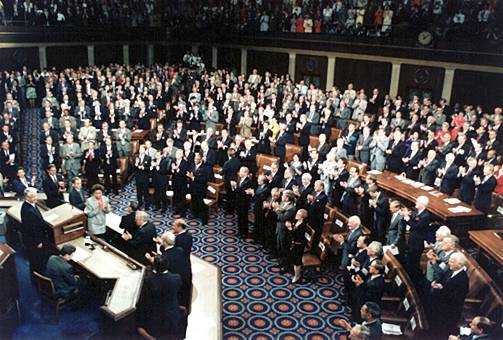
"...the United States, in Congress assembled."
The Articles of Confederation, Nov. 15, 1777
(The forgoing is used 28 times in that document.)
"A citizen of the United States is a citizen of the federal government ..."
Kitchens v. Steele (1953) 112 F.Supp 383, United States District Court W. D. Missouri, W. D.
“There are, then, under our republican form of government, two classes
of citizens, one of the United States and one of the state”.
Gardina v. Board of Registrars of Jefferson County, 160 Ala. 155; 48 So. 788 (1909)
“We have in our political system a government of the United States and
a government of each of the several States. Each one of
these governments is distinct from the others, and each has citizens of
it’s own...”
United States v. Cruikshank, 92 U.S. 542 (1875)
“It is quite clear, then, that there is a citizenship of the United
States, and a citizenship of a state, which are distinct from each
other and which depend upon different characteristics or circumstances
in the individual”.
Slaughter-House Cases, 83 U.S. 36 (16 Wall.); 21 L.Ed. 394 (1873)
“...there was no such thing as citizen of the United States, except as that condition arose from citizenship of some state.”
United States v. Anthony, 24 Fed. Cas. 829, (Case No. 14,459)(1873)
"The term 'Citizen of the United States' must be understood to mean
those who were citizens of the State as such after the Union had
commenced and the several States had assumed their sovereignty.
Before that period there were no citizens of the United States."
Inhabitants of Manchester v. Inhabitants of Boston, 16 Mass. 230, 235.
“...he was not a citizen of the United States, he was a citizen and
voter of the State,...” “One may be a citizen of a State and yet
not a citizen of the United States”.
McDonel v. The State, 90 Ind. 320 (1883)
““Citizenship” and “residence”, as has often been declared by the courts, are not convertible terms. ...
“”The better opinion seems to be that a citizen of the United States
is, under the amendment [14th], prima facie a citizen of the state
wherein he resides , cannot arbitrarily be excluded therefrom by such
state, but that he does not become a citizen of the state against his
will, and contrary to his purpose and intention to retain an already
acquired citizenship elsewhere. The amendment [14th] is a
restraint on the power of the state, but not on the right of the person
to choose and maintain his citizenship or domicile”“.
Sharon v. Hill, 26 F. 337 (1885) [inserts added]
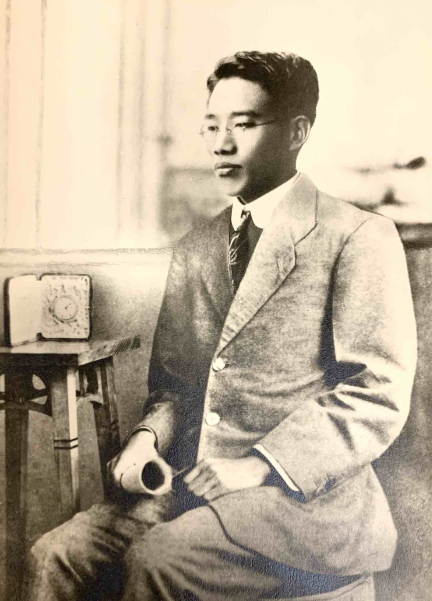 Dr. Kikuo Tashiro, 1918
Dr. Kikuo Tashiro, 1918
“That there is a citizenship of the United States and citizenship of a state”,...
Tashiro v. Jordan (1927)201 Cal. 236
"Except as modified by statute, the place of birth governs citizenship status".
Rogers v. Bellei, 401 U. S. 815; 28 L.Ed.2d 499; 91 S.Ct. 1060 (1971).
"The United States and the State of California are two separate sovereignties, each dominant in its own sphere."
Redding v. Los Angeles (1947), 81 C.A.2d 888
THEREFORE, YOU'RE EITHER A CITIZEN OF ONE OF THESE...
OR YOU'RE A CITIZEN OF THIS...

“There is a difference between privileges and immunities belonging to
the citizens of the United States as such, and those belonging to the
citizens of each state as such”.
Ruhstrat v. People, 57 N.E. 41 (1900)
“The rights and privileges, and immunities which the fourteenth
constitutional amendment and Rev. St. section 1979 [U.S. Comp. St.
1901, p. 1262], for its enforcement, were designated to protect, are
such as belonging to citizens of the United States as such, and not as
citizens of a state”.
Wadleigh v. Newhall, 136 F. 941 (1905)
“The governments of the United States and of each state of the several
states are distinct from one another. The rights of a
citizen under one may be quite different from those which he has under
the other”.
Colgate v. Harvey, 296 U.S. 404; 56 S.Ct. 252 (1935)
“...rights of national citizenship as distinct from the fundamental or natural rights inherent in state citizenship”.
Madden v. Kentucky, 309 U.S. 83: 84 L.Ed. 590 (1940)

[2] The people of the State of California are supreme and have the
undoubted right to protect themselves and to preserve the form of
government...
Steiner v. Darby (1948) 88 Cal.App.2d 481
"The people are such as are born upon the soil, by whom and for whom in the first place the Government was ordained...."
Walther v. Rabolt (1866) 30 Cal. 185
CALIFORNIA GOVERNMENT CODE
11120.
It is the public policy of this state that public agencies exist to aid
in the conduct of the people's business and the proceedings of public
agencies be conducted openly so that the public may remain informed.
In enacting this article the Legislature finds and declares that it is
the intent of the law that actions of state agencies be taken openly
and that their deliberation be conducted openly.
The people of this state do not yield their sovereignty to the agencies
which serve them. The people, in delegating authority, do
not give their public servants the right to decide what is good for the
people to know and what is not good for them to know. The
people insist on remaining informed so that they may retain control
over the instruments they have created.
This article shall be known and may be cited as the Bagley-Keene Open Meeting Act.
54950 DECLARATION OF LEGISLATIVE PURPOSE.
"In enacting this chapter, the Legislature finds and declares that the
public commissions, boards and councils and the other public agencies
in this State exist to aid in the conduct of the people's
business. It is the intent of the law that their actions be
taken openly and that their deliberations be conducted openly.
The people of this State do not yield their sovereignty to the agencies
which serve them. The people, in delegating authority, do
not give their public servants the right to decide what is good for the
people to know and what is not good for them to know. The people
insist on remaining informed so that they may retain control over the
instruments they have created".

